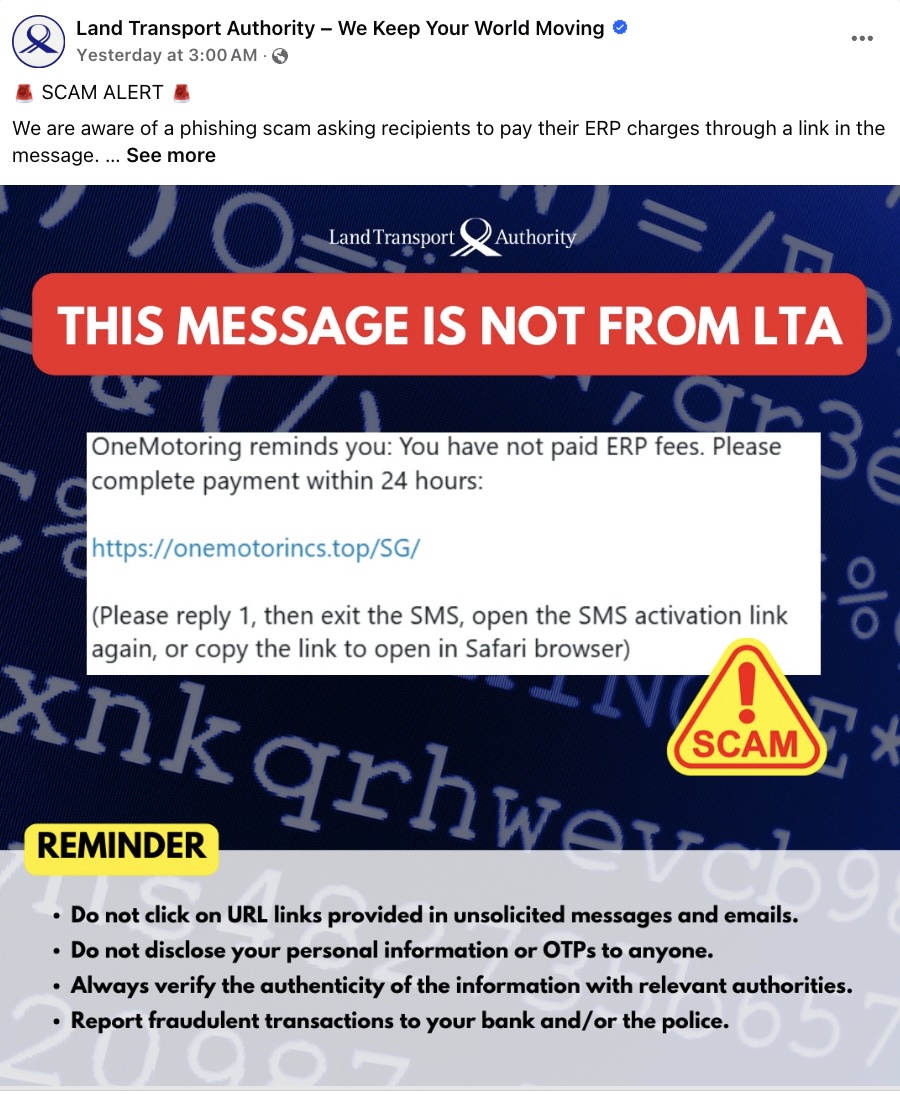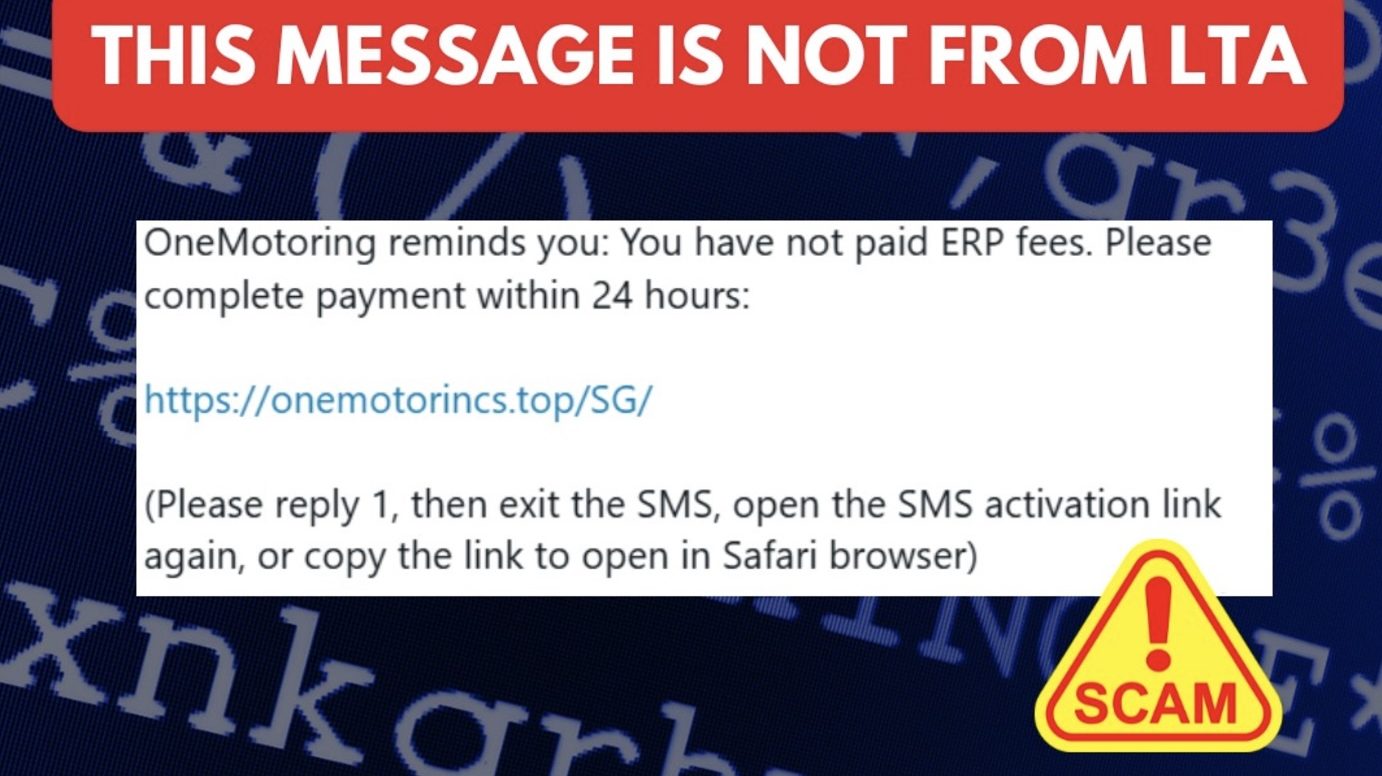SINGAPORE: On Tuesday (Dec 3), the Land Transport Authority (LTA) warned the public of a new phishing scam that asks people to pay for Electronic Road Pricing (ERP) fees.
However, fraudsters may have overplayed their hand, as even those who don’t drive have received messages purporting to be from the LTA.
In a phishing scam, an unwitting victim ends up revealing personal or sensitive information or gets deceived into installing malware, including viruses, worms, adware, or ransomware.
Over its Facebook, Instagram, and X accounts, the LTA said that it is aware of a current phishing scam where individuals receive messages asking them to pay for their ERP charges through a link in the SMS.

The authority posted a sample of such an SMS and warned, “THIS MESSAGE IS NOT FROM LTA.” The fake SMS reads, “OneMotoring reminds you: You have not paid ERP fees. Please complete payment within 24 hours.”
It then provides a link that appears to have an official address but in fact, does not, as it contains a misspelling of OneMotoring.
The message recipients are prompted concerning how they should reply and then asked to open the activation link or copy so they can open it on the Safari browser.
The LTA also informed the public that, like other government agencies, it does not send messages that have payment links.
Furthermore, the messages that the LTA does send are from a single “gov.sg” SMS Sender ID.
The agency is asking the people who have received this type of message not to click on the links provided. Nor should individuals disclose their personal information or OTPs to anyone else.
The LTA also reminded people to protect themselves against scams by always verifying the authenticity of the information in such messages with relevant authorities.
Also, if a member of the public is aware of any fraudulent transactions, they should report them to the bank and/or the police.
On the same day, Dec 3, the crowdsourced news site STOMP reported a person who had received a message similar to the example the LTA put up in its social media post, with the only difference being the link provided.
Ironically, the person does not even drive.
However, as he pointed out, a recipient of such a message might still end up getting scammed if they reply to the SMS, open the link, or copy the link onto a browser. /TISG
Read also: Scam alert: Victims lose $28K due to phishing scams impersonating OneMotoring

